Links to external sources may no longer work as intended. The content may not represent the latest thinking in this area or the Society’s current position on the topic.
Creating connections in the North West

This Royal Society conference will be held at the Museum of Science and Industry in Manchester on 20 November 2017.
Creating connections – Research, industry and infrastructure in the North West will address the scientific and technical challenges of the next decade and bring together leading experts from academia, industry, government and charities.
The conference will focus on three broad themes reflecting priority areas for science and industry in the North West: Materials, Human Health and Data. Prominent scientists from businesses and universities will share their perspectives on the scientific and technical challenges and opportunities in these areas. This will feed into a broader discussion about the role of the North West in driving UK innovation and prosperity.
Attending this event
This event is free to attend and is by invitation only, however there will be a limited number of places for others interested in participating. If you would like to attend, please email industry@royalsociety.org with a short explanation as to why you are interested in the event. As places are limited, we cannot guarantee that there will be a space available.
Schedule
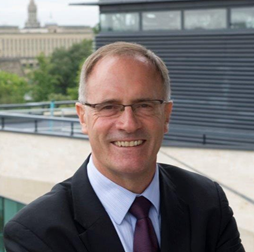
Professor Alexander Halliday FRS, Physical Secretary and Vice-President, the Royal Society

Professor Alexander Halliday FRS, Physical Secretary and Vice-President, the Royal SocietyAlex Halliday has been Professor of Geochemistry at Oxford University since October 2004. Before coming to Oxford, he spent twelve years as a professor at the University of Michigan and then six years in Switzerland, where he was Head of the Department of Earth Sciences at the ETH in Zürich. His research involves the use of isotopic methods to study Earth and planetary processes. Halliday's research accomplishments have received widespread international recognition. In addition, he is a former President of the Geochemical Society, the European Association of Geochemistry, and the Volcanology, Geochemistry and Petrology Section of the American Geophysical Union. He has experience with a range of top science boards and advisory panels. At Oxford he was Head of the Division of Mathematical, Physical and Life Sciences (science and engineering) from 2007 to 2015. He was elected Vice President (Physical Secretary) of the Royal Society in 2014. 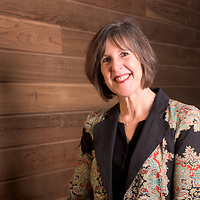
Professor Janet Beer, Vice-Chancellor, University of Liverpool

Professor Janet Beer, Vice-Chancellor, University of LiverpoolProfessor Janet Beer took up post as Vice-Chancellor of the University of Liverpool in February 2015, having formerly been Vice-Chancellor of Oxford Brookes University. Professor Beer is President of UUK and also a Trustee of the British Council. She chairs the Liverpool Knowledge Quarter Board and is a member of the Liverpool Science Park Board and the Liverpool City Region Local Enterprise Partnership (LEP) Board. In June 2017 she was appointed by the Metro Mayor Steve Rotheram as the adviser on Higher Education for the Liverpool City Region. Professor Beer has an established record of research and scholarship in late nineteenth and early twentieth century American literature and culture and most recently completed a study of the late writing of Edith Wharton. 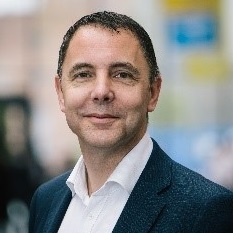
Brian Holliday CEng FIET, Managing Director - Siemens Digital Industries

Brian Holliday CEng FIET, Managing Director - Siemens Digital IndustriesBrian Holliday is a member of the Senior Leadership Team of Siemens plc and Managing Director for Siemens Digital Industries, which serves the manufacturing and infrastructure sectors. He is also Chairman of Siemens Industry Software UK. He holds board memberships for the High Value Manufacturing Catapult and Make UK, the Manufacturers’ Organisation, and has contributed to Parliamentary Select Committees on the topics of Education and Industry 4.0. He is a member of the Royal Society’s Science, Industry and Translation Committee. A Chartered Engineer and Fellow of the Institution of Engineering and Technology, Brian started his career with Texas Instruments and went on to read Computer Systems at Cardiff University before joining Siemens, the global leader in electrification, automation and digitalisation in 1993. He attained his Executive MBA at Manchester Business School in 2000 and in 2014 became a graduate of the CBI’s Executive Leadership Programme. 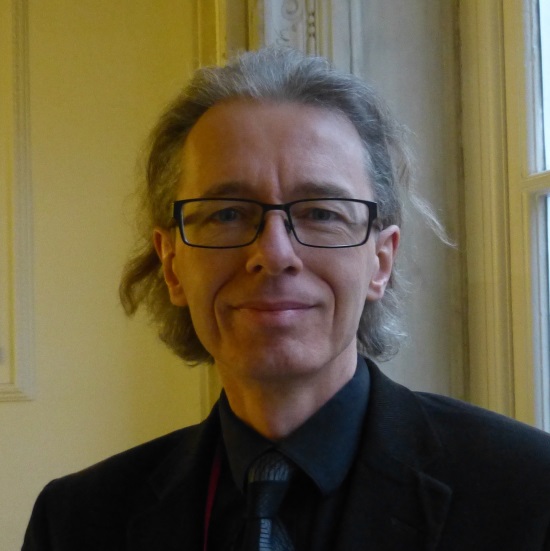
Keith Moore, Head of Library and Information Services, The Royal Society

Keith Moore, Head of Library and Information Services, The Royal SocietyKeith has been the head of Library and Information Services at the Royal Society since July 2005. Prior to joining the Society, he worked at the Institution of Mechanical Engineers as Head of Library and was Assistant Curator of Western Manuscripts at the Wellcome Trust. Keith began his career in literary libraries: he worked for the Wordsworth Trust at Dove Cottage in Grasmere and the Armitt Library, Ambleside. Since 2015 Keith has regularly featured in the video blog Objectivity, presenting artefacts from the archives at the Royal Society |
Chair
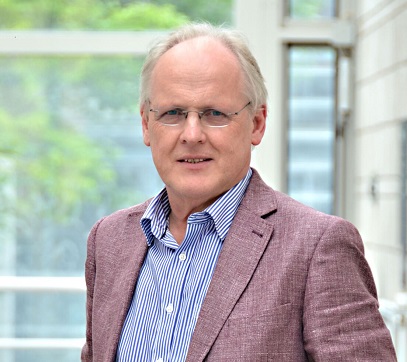
Professor Steve Furber CBE FREng FRS, University of Manchester

Professor Steve Furber CBE FREng FRS, University of Manchester
Steve Furber CBE FREng FRS is ICL Professor of Computer Engineering in the School of Computer Science at the University of Manchester, UK. After completing a BA in mathematics and a PhD in aerodynamics at the University of Cambridge, UK, he spent the 1980s at Acorn Computers, where he was a principal designer of the BBC Microcomputer and the ARM 32-bit RISC microprocessor. Over 100 billion variants of the ARM processor have since been manufactured, powering much of the world's mobile and embedded computing. He moved to the ICL Chair at Manchester in 1990 where he leads research into asynchronous and low-power systems and, more recently, neural systems engineering, where the SpiNNaker project is delivering a computer incorporating a million ARM processors optimised for brain modelling applications.
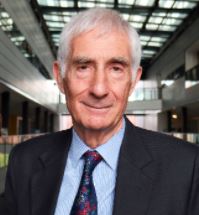
Professor Christopher Taylor OBE FREng, University of Manchester

Professor Christopher Taylor OBE FREng, University of ManchesterProfessor Chris Taylor received his BSc in physics and PhD in computer image analysis from the University of Manchester, in 1967 and 1972 respectively. He currently has University-wide roles as Associate Vice President for Research and Director of Manchester Informatics. His academic appointment is joint between Informatics, Imaging & Data Science in the Faculty of Biology, Medicine and Health, where Chris' research group is based, and the School of Computer Science, in the Faculty of Science and Engineering, where he was Head of School 2004 – 2008. Chris' core research is in computer vision and medical image analysis – with a central interest in developing generic methods to underpin practical applications in medicine, industry, and commerce – but broader interests include informatics, data science and connected health. Chris has a long history of involvement in technology transfer, establishing long-term partnerships with industry, and spinning out five new companies. He was awarded an OBE in 2000 for contributions to Foresight and Health Informatics and was elected a Distinguished Fellow of the British Machine Vision Association in 2003, Fellow of the International Association for Pattern Recognition in 2004, Fellow of the Royal Academy of Engineering in 2006, Fellow of the (International) Medical Image Computing and Computer Aided Intervention (MICCAI) Society in 2009, and was the 3rd recipient of the MICCAI Enduring Impact Award in 2011. Chris am currently chair of the EPSRC Healthcare Technologies Strategic Advisory Team. 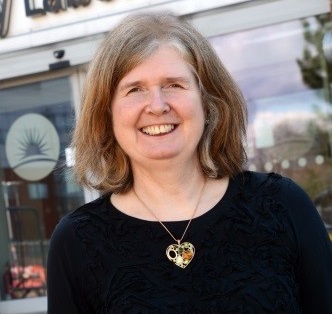
Alison Kennedy, Director, Hartree Centre

Alison Kennedy, Director, Hartree CentreAlison Kennedy is the Director of the Hartree Centre, based at the UK’s Science and Facilities Council’s National Laboratory at Daresbury. The Hartree Centre is funded by the UK government with a remit to improve the global competitiveness of UK industry by facilitating the adoption of High Performance Computing, High Performance Data Analytics and Cognitive Computing techniques by companies of all sizes. Prior to joining the Hartree Centre, she was the Executive Director of EPCC, the national HPC centre based at the University of Edinburgh and has recently completed a term of office as the Managing Director and Chair of the Board of Directors of PRACE (Partnership for Advanced Computing in Europe). She began her working life as a real time systems programmer in industry and has now worked in HPC for more almost 25years, managing large collaborative projects in HPC and Data. 
Professor Sofia Olhede, University College London

Professor Sofia Olhede, University College LondonSofia Olhede has been a professor of Statistics since 2007 and one year later was made an honorary professor of computer science at University College London (UCL). She was awarded her PhD in 2003 at Imperial College London, where she was a Lecturer (assistant professor) and Senior Lecturer (associate professor) between 2002 and 2006. She is Director of UCL's Centre for Data Science, and until last year, chair of the Alan Turing Institute’s Science Committee. Sofia served on the UK Royal Society’s Machine Learning Committee, the British Academy and Royal Society Data Governance Project, and is a member of the Personal Data and Individual Access Control section of the The IEEE Global Initiative for Ethical Considerations in Artificial Intelligence and Autonomous Systems. She currently holds a European Research Council consolidator fellowship, and previously held a five year UK Engineering and Physical Sciences research council Leadership Fellowship. 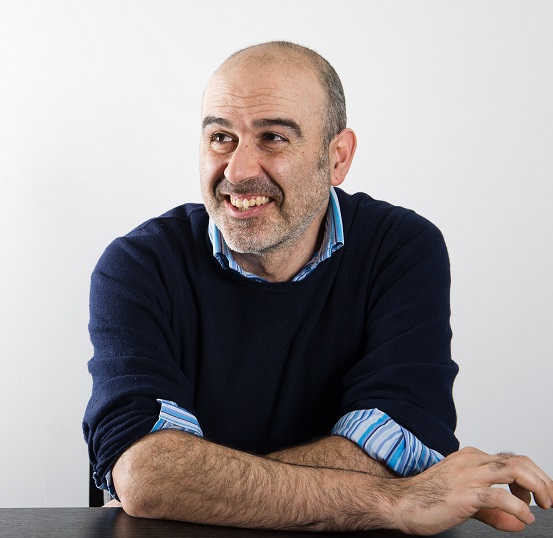
Professor Juan Medina-Ariza, Professor of Quantitative Criminology, University of Manchester

Professor Juan Medina-Ariza, Professor of Quantitative Criminology, University of ManchesterJuanjo Medina is Professor of Quantitative Criminology at the University of Manchester, where he has been working since 2000. Previous to that he worked in the US and Spain. He is the current President of the Spanish Society of Criminology. His research has focused on the study of gangs, gender violence, and crime prevention policy. At present he leads a ESRC interdisciplinary project aiming to improve domestic abuse risk assessment by criminal justice actors by using machine learning to process administrative data on perpetrators and their victims. 
Professor Samia Nefti-Meziani Professor of Artificial Intelligence and Robotics, University of Salford

Professor Samia Nefti-Meziani Professor of Artificial Intelligence and Robotics, University of Salford |
Chair
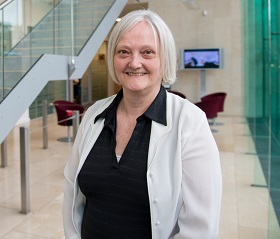
Professor Janet Hemingway CBE FRS, Director, Liverpool School of Tropical Medicine

Professor Janet Hemingway CBE FRS, Director, Liverpool School of Tropical Medicine
Professor Janet Hemingway is Professor of Insect Molecular Biology and Director of the Liverpool School of Tropical Medicine. With over 450 staff based in Liverpool, Malawi and several other tropical locations. She is also a Senior Technical Advisor on Neglected Tropical Diseases for the Bill and Melinda Gates Foundation, and has 38 years’ experience working on the biochemistry and molecular biology of specific enzyme systems associated with xenobiotic resistance.
She has been PI on projects in excess of £60 million including the Bill and Melinda Gates Foundation funded Innovative Vector Control Consortium. She holds a BSc in Genetics and Zoology from Sheffield University; a PhD on ‘The biochemistry and genetics of insecticide resistance in Anopheles' from the University of London (London School of Hygiene and Tropical Medicine).
Professor Hemingway was awarded the Commander of the British Empire (CBE) for services to the Control of Tropical Disease Vectors 2012.
Infectious diseases
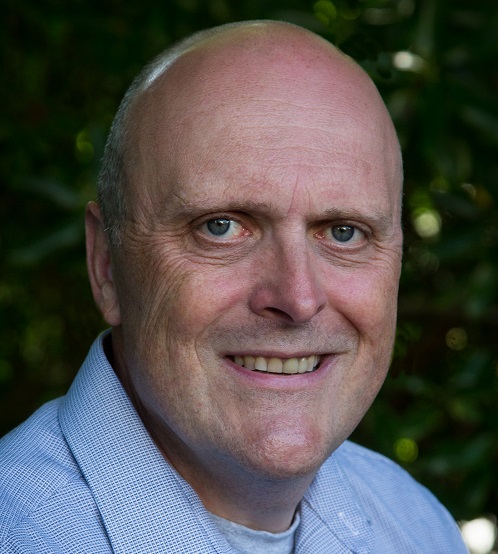
Dr Dave Cook, Chief Scientific Officer, Blueberry Therapeutics

Dr Dave Cook, Chief Scientific Officer, Blueberry TherapeuticsDavid has a background in biochemistry, immunology and molecular biology with a PhD from Imperial College, London and three years of post-doctoral experience. David has worked in the pharmaceutical industry for almost 20 years. He worked in big pharma at AstraZeneca for more than 17 years in a wide variety of R&D roles both in the UK and the US. Whilst at AstraZeneca he was heavily involved in developing the use of informatics and systems biology to support the development of new medicines. David joined Blueberry Therapeutics as Chief Scientific Officer at the start of 2014. In this role, he is responsible for leading the research activities of the business which are focused on developing new treatments for serious infectious diseases. The first of these treatments has now entering clinical testing. 
Dr Samantha Samaras, Vice President of Strategic Science R&D, Unilever

Dr Samantha Samaras, Vice President of Strategic Science R&D, UnileverSamantha has rejoined Unilever after almost 20 years away. She was part of the Edgewater labs, where she worked on keratinocyte biology, and understanding lipids in the differentiating skin. Sam was at Johnson and Johnson for the last 10 years, first leading the ageless platform team developing insights to drive innovation in the ageless skin care space. She became a fellow in 2009, and was part of a team that won the 2014 Johnsons Medal for discovering and developing Hexinol. In her last role, she led innovation and claims strategy for the baby needs state and was instrumental to the science behind the re-focus and launch of Johnsons Baby. Prior to J&J, Sam spent 11 years at Merck, focusing on Infectious Disease drug discovery, first on Malaria then on natural product antimicrobial/antifungal discovery. She was part of the Elitra Pharmaceutical integration team which brought cutting edge bio-genomics platforms to antibacterial drug discovery. She is the author of many peer-review publications and patents, and has spoken as a scientific expert at many global press events. 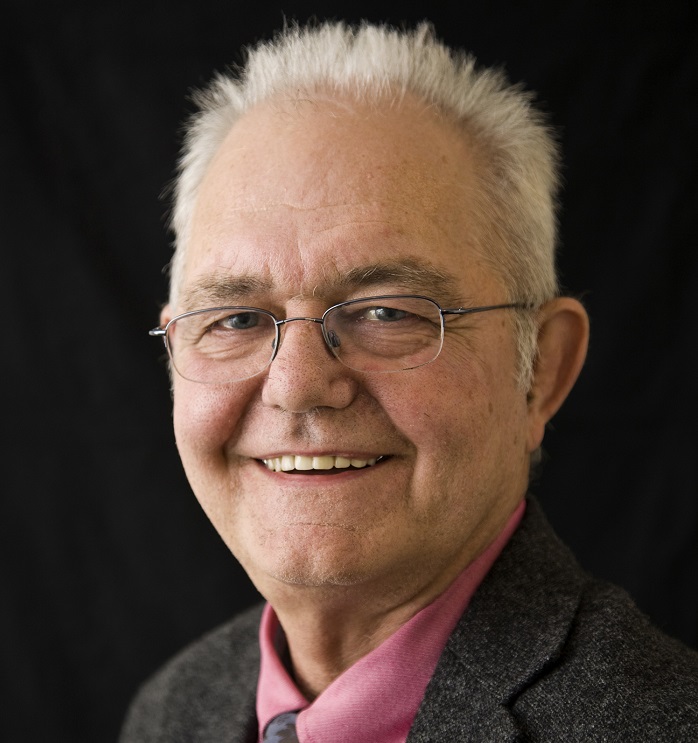
Professor Peter Diggle, CHICAS, Lancaster Medical School, Lancaster University

Professor Peter Diggle, CHICAS, Lancaster Medical School, Lancaster UniversityPeter J Diggle graduated BSc (Liverpool) in 1972, MSc (Oxford) in 1973, PhD (Newcastle upon Tyne) in 1977. Between 1974 and 1984 he was Lecturer, then Reader in Statistics at the University of Newcastle upon Tyne. Between 1984 and 1988 he was Senior Research Scientist, then Principal Research Scientist, then Chief Research Scientist in CSIRO Division of Mathematics and Statistics, Canberra. Since 1988 he has been at Lancaster University, where his current position is Distinguished University Professor in the Lancaster Medical School. He also Professor holds honorary appointments at the Johns Hopkins University School of Public Health, Columbia University International Research Institute for Climate and Society and Yale University School of Public Health. His research interests are in statistical methods for spatial and longitudinal data analysis, and their applications in the biomedical and health sciences, with a particular focus on environmental and tropical disease epidemiology, and on the use of routinely recorded electronic data-streams for real-time public health surveillance. |
|
Health informatics
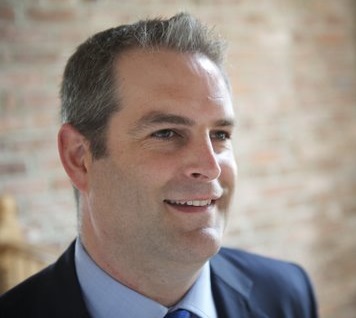
Rory Cameron, Chief Operating Officer, Gendius

Rory Cameron, Chief Operating Officer, GendiusRory's has successfully set up profitable and sustainable businesses in many different specialised sectors. Rory’s was Senior Vice President and General Manager at InterMune UK & Ireland where he was the fourth employee in the EU and set up the UK and Irish businesses over a 4 year period until their successful acquisition by Roche for $8.3B. Two and half years ago Rory co-founded Gendius a company on a mission to make 'living with diabetes easier'. On this journey we have developed an App based platform 'Intellin' that is in grant funded clinical studies for diabetic foot ulcers and in gestational diabetes (through Innovate UK and SBRI). Last week Gendius also announced successful funding from Catapult Ventures. Rory’s background is in Sales, Marketing, General Management and Angel Investment and he has a passion for ensuring we improve the delivery of care to patients. He wants to use the learnings from the Pharmaceutical market to speed the safe access of mobile health to patients. 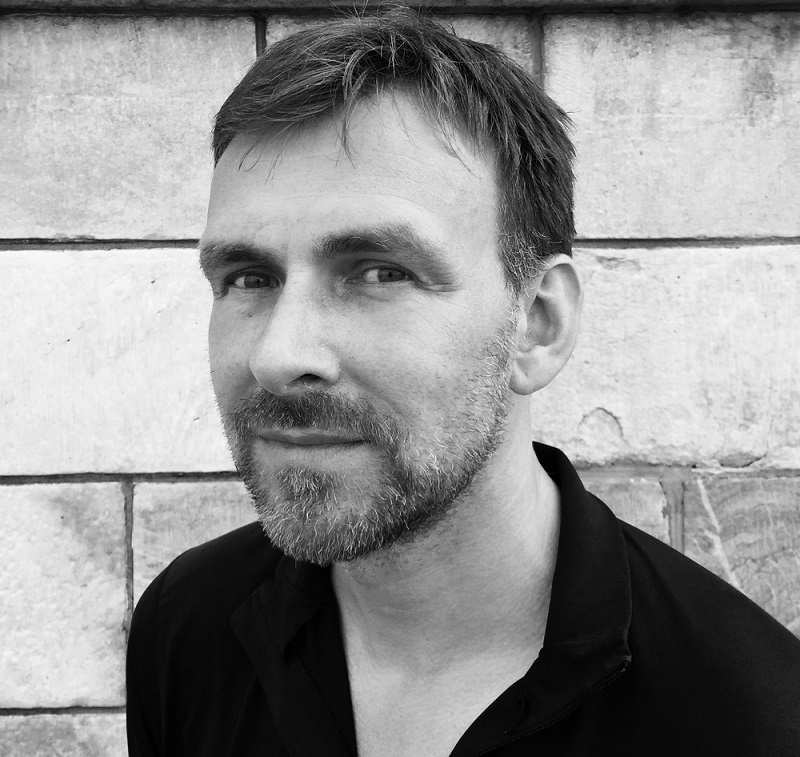
Professor Niels Peek, Professor of Health Informatics, University of Manchester

Professor Niels Peek, Professor of Health Informatics, University of ManchesterNiels Peek is Professor of Health Informatics at the University of Manchester and Director of the Greater Manchester Connected Health City. He has a background in Computer Science and Artificial Intelligence. His research focuses on data-driven methods for healthcare quality improvement; data mining for healthcare; predictive models; electronic audit and feedback; and computerised decision support. In April 2017, he organised the Informatics for Health 2017 conference in Manchester which was attended by more than 800 people from 30 countries. He also co-chaired the Scientific Programme Committee of MEDINFO-2017, the 16th World Congress on Health and Biomedical Informatics which was held in Hangzhou, China. From 2013 to 2017, he was the President of the international Society for Artificial Intelligence in Medicine. He has co-authored more than 150 peer-reviewed publications. 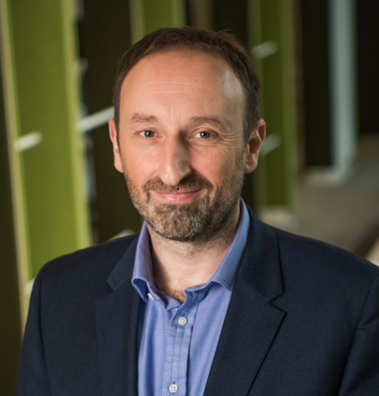
Dr Adam Platt, Head of Global Genomics Portfolio, AstraZeneca

Dr Adam Platt, Head of Global Genomics Portfolio, AstraZenecaAdam has two roles at AstraZeneca. As Head of the RIA Companion Diagnostic Unit in Precision Medicine and Genomics (PMG), he ensures that companion diagnostic tests or equivalent segmentation tools are delivered to drug products within Respiratory, Inflammation and Autoimmunity. To deliver precision medicine in therapeutic areas outside oncology involves application of innovative approaches, such as Point-of-Care (PoC) diagnostic technology where, with diagnostic partners, we have achieved FDA clearance for a PoC serum uric acid meter and have developed a prototype PoC diagnostic for eosinophilic respiratory disease. Adam is also Global Head of Genomics Portfolio in AstraZeneca’s Centre for Genomics Research. Integrating genome sequence and clinical data from up to 2 million patients from AstraZeneca’s clinical trials and key international partnerships, this initiative will analyse an unprecedented number of genomes, discover rare genomic variants with functional significance, and apply comprehensively across AstraZeneca and MedImmune’s therapeutic pipeline to transform drug discovery and development. Adam received his PhD in molecular genetics from the University of Liverpool in 1995 and undertook postdoctoral fellowships at Yale and Manchester universities, investigating the regulation of gene expression, before embarking upon a Pharma career at Chiroscience, Celltech, UCB, Roche and most recently at AstraZeneca in 2011. |
Chair
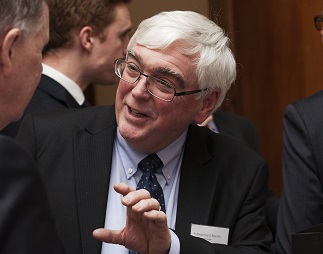
Professor Paul O'Brien CBE FREng FRS, Professor of Inorganic Materials, University of Manchester

Professor Paul O'Brien CBE FREng FRS, Professor of Inorganic Materials, University of Manchester
Paul O’Brien is one of the world’s leading inorganic materials scientists focusing on developing new chemical processes for manufacturing thin films and nanoparticles. Amongst these are chemical vapour deposition techniques for compounds containing sulfur or selenium, and a very simple method for making quantum dots — semiconductor nanocrystals that show unusual behaviour.
Paul is a strong believer in interdisciplinary work and has collaborated on projects with physicists, computer scientists and electronic and electrical engineers. His interest in the toxicity of metal ions has led to collaborations and publications with toxicologists, pharmacists and clinicians.
Paul is a strong advocate of communicating science to a wider audience and gives popular talks — usually on nanotechnology — including Café Scientifique and school lectures. He has edited many books, including a series on nanoscience and technology for the Royal Society of Chemistry (RSC). His accolades include the the IoM3’s Sir Colin Humphries Award (for outreach) and Platinum Medal, the SDC Gold Medal, the RSC’s Longstaff medal, and honorary degrees from the universities of Zululand, Liverpool, Aveiro and Queen Mary London. Paul was elected to the Fellowship in 2013, The Learned Society of Wales 2015 and received a CBE and an FREng in 2016.
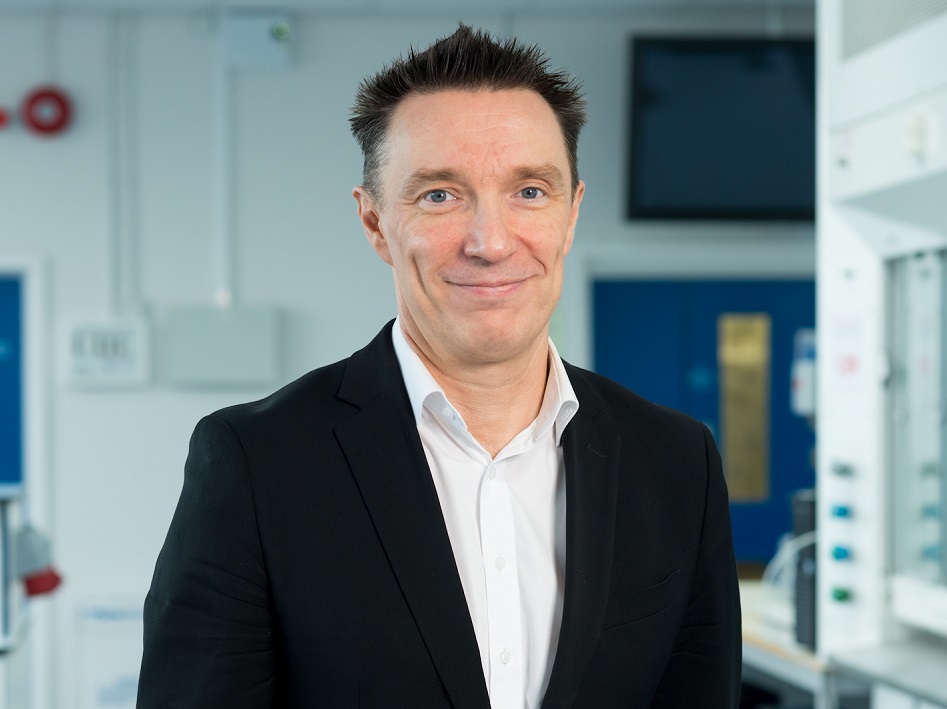
Professor Andrew Cooper FRS, University of Liverpool, UK

Professor Andrew Cooper FRS, University of Liverpool, UKAndy led the bid to establish the Materials Innovation Factory (MIF) via the UK Research Partnerships Infrastructure Fund and he is its first Academic Director. He is also the Director of the £10 M Leverhulme Centre for Functional Materials Design. His main research interests are organic materials, supramolecular chemistry, and materials for energy production and molecular separation. This is underpinned by a strong technical interest in high-throughput methods and robotics. Andy was elected to the Royal Society in 2015. He has been awarded the Macro Group Young Researchers Award (2002), the RSC Award in Environmentally Friendly Polymers (2005), the McBain Medal (2007), the Corday-Morgan Prize (2009), the Macro Group Award (2010), a Royal Society Wolfson Research Merit Award, the Tilden Prize (2014), the American Chemical Society Doolittle Award (2014) and the Hughes Medal (2019). He was also the 2015 MIT-Georgia Pacific Lecturer in Organic Chemistry. In both 2011 and 2014, Andy was named in a Thomson Reuters list as one of the Top 100 materials scientists of the last decade. He was also named in the more recent 2017 Clarivate Highly Cited list in the field of chemistry. He was awarded an ERC Advanced Investigators grant in 2012 (RobOT). In 2015, he was appointed as a Consultant Professor in Hauzhong University of Science & Technology, China. He was also appointed as an Honorary Professor at East China University of Science and Technology, Shanghai, in 2017. 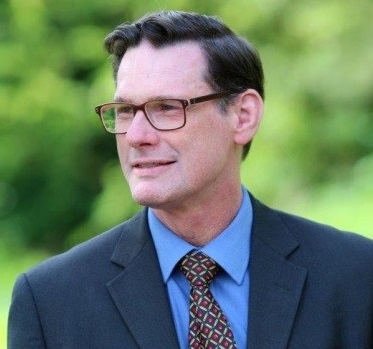
Professor Andrew Sherry, Chief Science and Technology Officer, National Nuclear Laboratory

Professor Andrew Sherry, Chief Science and Technology Officer, National Nuclear LaboratoryProfessor Andrew Sherry was appointed as NNL’s Chief Scientist in January 2015, joining NNL from The University of Manchester where he was Director of the Dalton Nuclear Institute. Previously he was Director of the University’s Materials Performance Centre, held a Royal Society Industry Fellowship, and was a senior consultant in the nuclear industry working within the field of materials and structural integrity. Andrew led the establishment of the flagship Dalton Cumbrian Facility, a partnership with the Nuclear Decommissioning Authority to create a centre of excellence in radiation science and engineering decommissioning research, and led the collaboration with Sheffield University to create the Nuclear Advanced Manufacturing Research Centre. He was also Programme Director for the £8 million “New Nuclear Manufacturing” research programme funded by the Engineering and Physical Research Council, the Universities of Manchester and Sheffield and Rolls-Royce. Andrew has been a member of both the UK Nuclear Industry Council and the UK Nuclear Innovation Research Advisory Board. He provides independent advice on strategic and technical aspects of nuclear power and has advised international nuclear bodies including CEA, INL and the Korea Atomic Energy Research Institute. 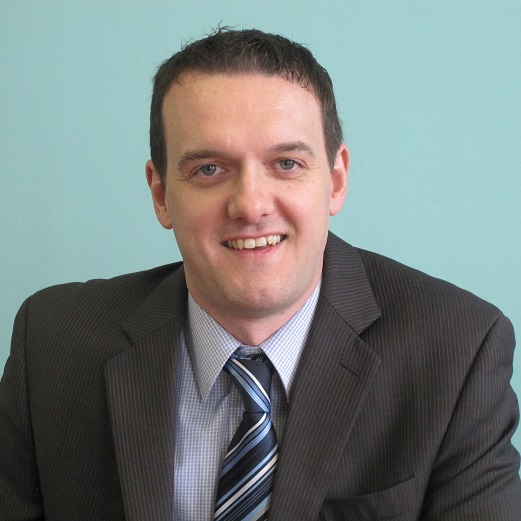
Dr Damian Kelly, Head of Global Research & Development, Croda

Dr Damian Kelly, Head of Global Research & Development, CrodaDamian holds a BSc in Chemistry, MSc in Surface Science & Catalysis and a PhD in Tribology from the University of Cambridge. Upon graduation Damian joined the Croda Graduate Development Programme in 2001. Over the past 16 years Damian has held several positions across different Croda markets, divisions and functions including Personal Care Sales Manager for Latin America, Performance Technologies Business Development Manager for North America and Life Sciences Vice President for Europe with both Technical and Commercial responsibility. Damian is presently Head of Global Research & Development for all Croda sectors, based at Croda’s manufacturing site in Widnes, Cheshire. Damian is also the technical lead for Croda’s Technology Investment Group which is responsible for the acquisition and licensing of new technologies that match the needs of all Croda’s end markets. 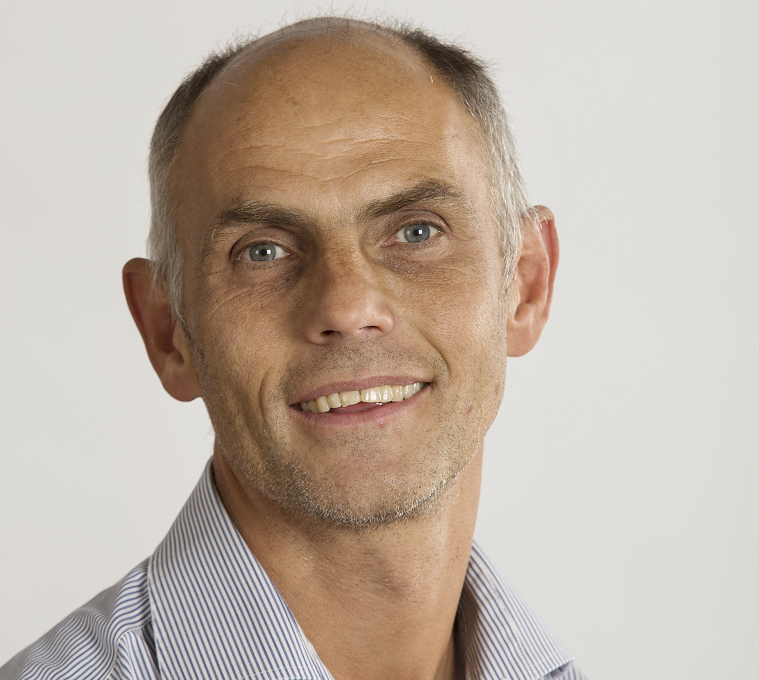
Professor Philip Withers, Regius Professor of Materials, University of Manchester

Professor Philip Withers, Regius Professor of Materials, University of ManchesterProfessor Philip Withers FRS, FREng, FRAeS, FIMMM has made a seminal contribution to our fundamental understanding of the performance of materials through his pioneering use of neutron, synchrotron X-ray and laboratory X-ray beams to provide new insights on behaviour, often in-operando under demanding conditions. He is a Fellow of the Institute of Materials, Minerals and Mining (IoM3, 2004), the Royal Academy of Engineering (2005), the Royal Aeronautical Society (2008) and the Royal Society (2016) and Academia Europaea (2017). He set up the Manchester X-ray Imaging Facility which has one of the most extensive sets of X-ray CT scanners which was awarded the Queen’s Anniversary Medal in 2014. He became the inaugural Regius Professor of Materials in 2017 and is currently Chief Scientist for the Henry Royce Institute for Advanced Materials. Besides being fascinated by understanding how materials behave he is a passionate communicator of science to the public. 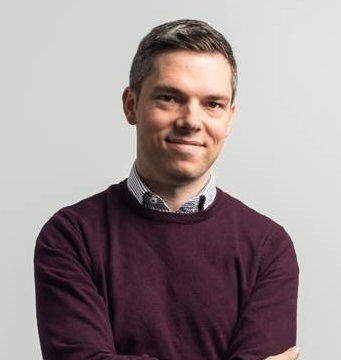
Dr Michael Kember, Head of Research and Intellectual Property, Econic Technology

Dr Michael Kember, Head of Research and Intellectual Property, Econic TechnologyMike is a co-inventor of Econic’s catalysts and has been involved in developing the technology for over 10 years, starting with the academic discovery. He joined Econic at the beginning of it’s life, and now manages the catalyst discovery and development technical programme as well as overseeing the growing patent portfolio. Prior to formation of Econic, he has held personal postdoctoral fellowships from AXA and EPSRC at Imperial College London where he also completed his PhD thesis in the area of catalysts for CO2/epoxide co-polymerization. Mike has an MChem from Oxford University, where he carried out a Masters research project in organometallic catalysis, sponsored by Johnson Matthey. |
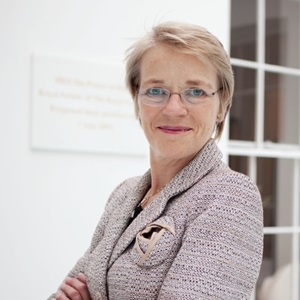
Dame Julie Maxton CBE, Executive Director, The Royal Society

Dame Julie Maxton CBE, Executive Director, The Royal SocietyDame Julie Maxton is the Executive Director of the Royal Society, the first woman in 350 years to hold the post. Before taking up her position at the Royal Society in 2011 Julie was Registrar at the University of Oxford, the first woman in 550 years in the role. She is an Honorary Fellow of University College Oxford, a Bencher of the Middle Temple, a Freeman of the Goldsmith’s Company and a Board member of Sense about Science. In the past she has also been on the Boards of the Alan Turing Institute, Blavatnik School of Government in Oxford, Haberdasher Aske’s School (Elstree), Engineering UK, Charities Aid Foundation and The Faraday Institute. Originally trained as a barrister at the Middle Temple, Julie combined a career as a practising lawyer with that of an academic, holding a number of senior academic positions, including those of Deputy Vice Chancellor, Professor and Dean of the Faculty of Law at the University of Auckland, New Zealand. Academic and other recognition Julie has received include a CBE (2017) and Honorary Degrees from the Universities of Huddersfield, Warwick, Canterbury, Hull and Bristol. She is the author of several books and numerous articles concerned with trusts, equity, commercial and property law. 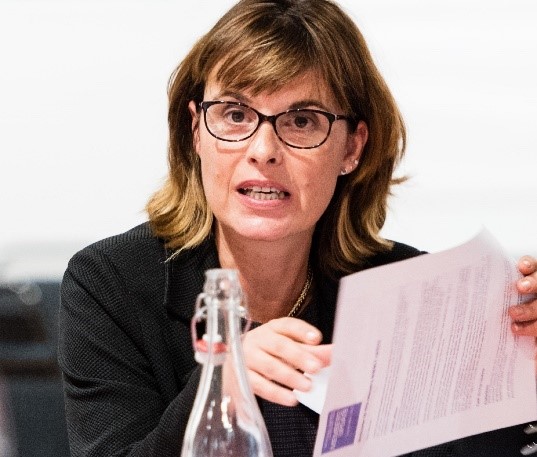
Emma Degg, Chief Executive, North West Business Leadership Team

Emma Degg, Chief Executive, North West Business Leadership TeamEmma Degg is the Chief Executive of the North West Business Leadership Team (NWBLT). The NWBLT brings together leaders of national and international businesses with substantial commitments and interests in the North West of England. The Team works to exert its collective influence for the long-term good of the region, economically, environmentally, culturally and socially. A graduate of the University of Liverpool, she has spent her career focussed upon bringing together business leaders and policy makers to make a tangible difference, nationally, across the North West and in local government. Emma regards the promotion of responsible business leadership as essential to the future of the UK economy, in particular the importance of inspiring and encouraging young people to achieve their full potential. |
